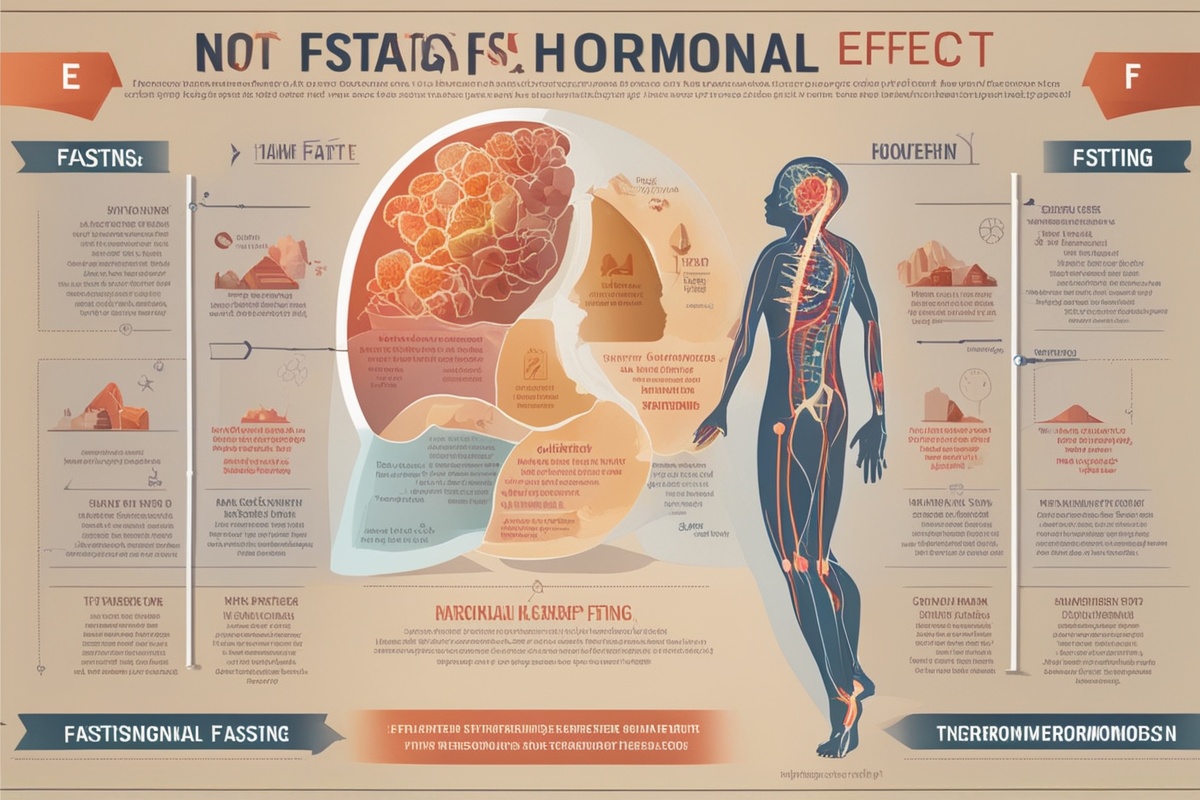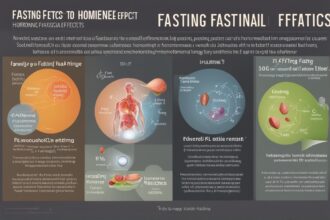Navigating the complexities of hormonal health can be challenging, but emerging research and practices like fasting are shedding light on natural ways to achieve balance. Hormones play a critical role in regulating everything from metabolism and mood to reproductive health and energy levels. When hormones are out of sync, it can lead to a host of issues, including weight gain, fatigue, and emotional imbalances. One approach gaining traction for its potential to support hormonal harmony is fasting. In this comprehensive guide, we’ll explore the concept of balancing hormones through fasting, diving into how this practice can influence your body’s endocrine system and overall well-being.
What Are Hormones and Why Do They Matter?
Hormones are chemical messengers produced by the endocrine glands that regulate numerous bodily functions. They control processes like hunger, stress responses, blood sugar levels, and reproductive cycles. When hormones like insulin, cortisol, estrogen, and testosterone are imbalanced, it can manifest as physical and mental health challenges. For instance, high cortisol levels from chronic stress can disrupt sleep and increase fat storage, while insulin resistance can lead to energy crashes and weight gain. Balancing hormones is essential for maintaining optimal health, and lifestyle interventions like fasting may offer a natural solution.
How Fasting Impacts Hormonal Balance
Fasting, the practice of abstaining from food for a specific period, has been shown to influence hormonal pathways in profound ways. When you fast, your body shifts from relying on glucose for energy to burning stored fat, a process called ketosis. This metabolic switch can positively affect hormones like insulin by improving sensitivity and reducing resistance. Additionally, fasting can lower levels of ghrelin (the hunger hormone) while increasing human growth hormone (HGH), which supports tissue repair and metabolism. By incorporating fasting into your routine, you may create an environment where balancing hormones through fasting becomes a sustainable goal. To learn more about how lifestyle impacts hormones, check out our post on Stress and Hormonal Imbalances.
Types of Fasting for Hormonal Health
Not all fasting methods are created equal, and choosing the right one can make a significant difference in balancing hormones through fasting. Intermittent fasting (IF), such as the 16/8 method (fasting for 16 hours and eating within an 8-hour window), is popular for its flexibility and hormonal benefits. Time-restricted eating focuses on aligning meals with your circadian rhythm, potentially reducing cortisol spikes. Longer fasts, like 24- or 48-hour fasts, may enhance autophagy—a cellular cleanup process that can indirectly support hormonal regulation. For women, cycle-syncing fasting (adjusting fasting based on menstrual phases) can prevent disruptions to estrogen and progesterone. Always consult a healthcare provider before starting any fasting regimen, especially if you have pre-existing conditions. For more on fasting methods, read our guide on Intermittent Fasting Basics.
Key Hormones Affected by Fasting
Fasting directly impacts several hormones critical to health. Insulin, for instance, decreases during fasting, allowing cells to become more responsive and reducing the risk of type 2 diabetes. Cortisol, often elevated due to stress, can normalize with consistent fasting, as the body adapts to a less reactive state. Fasting also boosts adiponectin, a hormone that enhances fat burning and insulin sensitivity. For women, fasting must be approached cautiously to avoid disrupting reproductive hormones—over-fasting can suppress estrogen and progesterone, leading to irregular cycles. Understanding these effects is key to effectively balancing hormones through fasting. Explore more about women’s hormonal health in our article on Hormonal Changes During Menopause.
Benefits and Risks of Fasting for Hormonal Balance
The benefits of balancing hormones through fasting are numerous. Improved insulin sensitivity can aid in weight management and reduce cravings, while lower cortisol levels may enhance mood and sleep quality. Fasting can also promote a healthy gut microbiome, which indirectly supports hormonal health by reducing inflammation. However, fasting isn’t without risks. Prolonged or improper fasting can lead to nutrient deficiencies, increased stress hormones, and disrupted menstrual cycles in women. It’s crucial to start slowly, stay hydrated, and prioritize nutrient-dense meals during eating windows. For personalized advice, consider reading our post on Nutrition for Hormonal Health.
Practical Tips for Balancing Hormones Through Fasting
If you’re new to fasting, start with a gentle approach to avoid shocking your system. Begin with a 12-hour overnight fast, gradually increasing to 14 or 16 hours as your body adjusts. Focus on breaking your fast with balanced meals that include protein, healthy fats, and complex carbohydrates to stabilize blood sugar and support hormonal health. Stay hydrated with water and electrolyte-rich fluids to prevent dehydration, which can elevate stress hormones. Listen to your body—symptoms like extreme fatigue or irritability may indicate that fasting isn’t suitable for you at this time. Pair fasting with stress-reducing practices like meditation or yoga for optimal results. For additional lifestyle tips, check out our guide on Mindfulness and Hormonal Balance.
Disclaimer: The information provided in this article is for educational purposes only and should not be considered medical advice. Fasting may not be suitable for everyone, especially individuals with certain medical conditions, pregnant or breastfeeding women, or those with a history of eating disorders. Always consult a healthcare professional or registered dietitian before starting any fasting regimen or making significant changes to your diet or lifestyle to ensure it is safe and appropriate for your individual needs.
References
- Effects of Intermittent Fasting on Health, Aging, and Disease – New England Journal of Medicine
- Intermittent Fasting: Surprising Update – Harvard Health Publishing
- Fasting Diet: Can It Improve My Health? – Mayo Clinic
- Intermittent Fasting Improves Insulin Sensitivity – Endocrine Society
- Hormonal Regulation During Fasting – Journal of Clinical Investigation
This content is for informational purposes only and not a substitute for professional advice.






